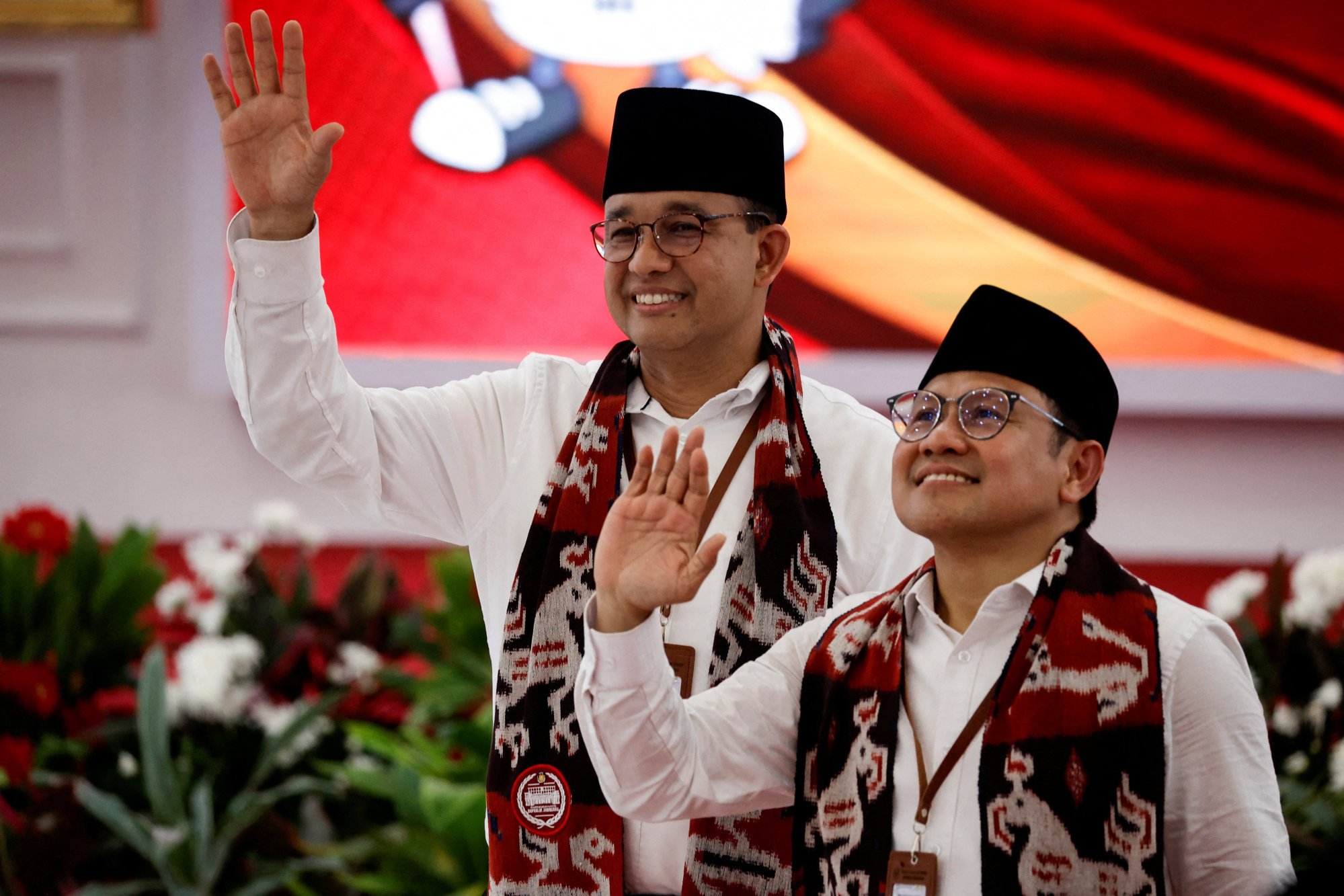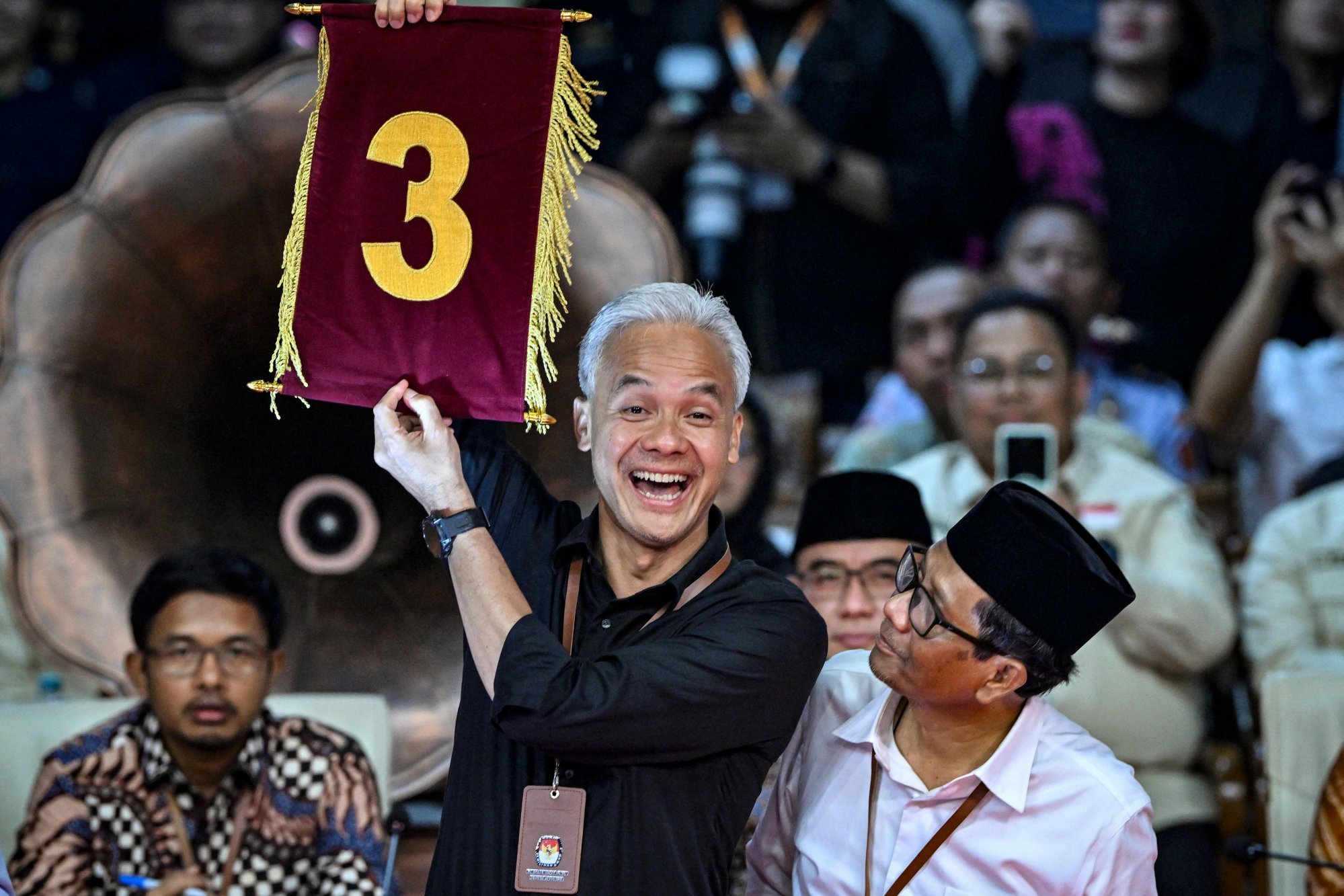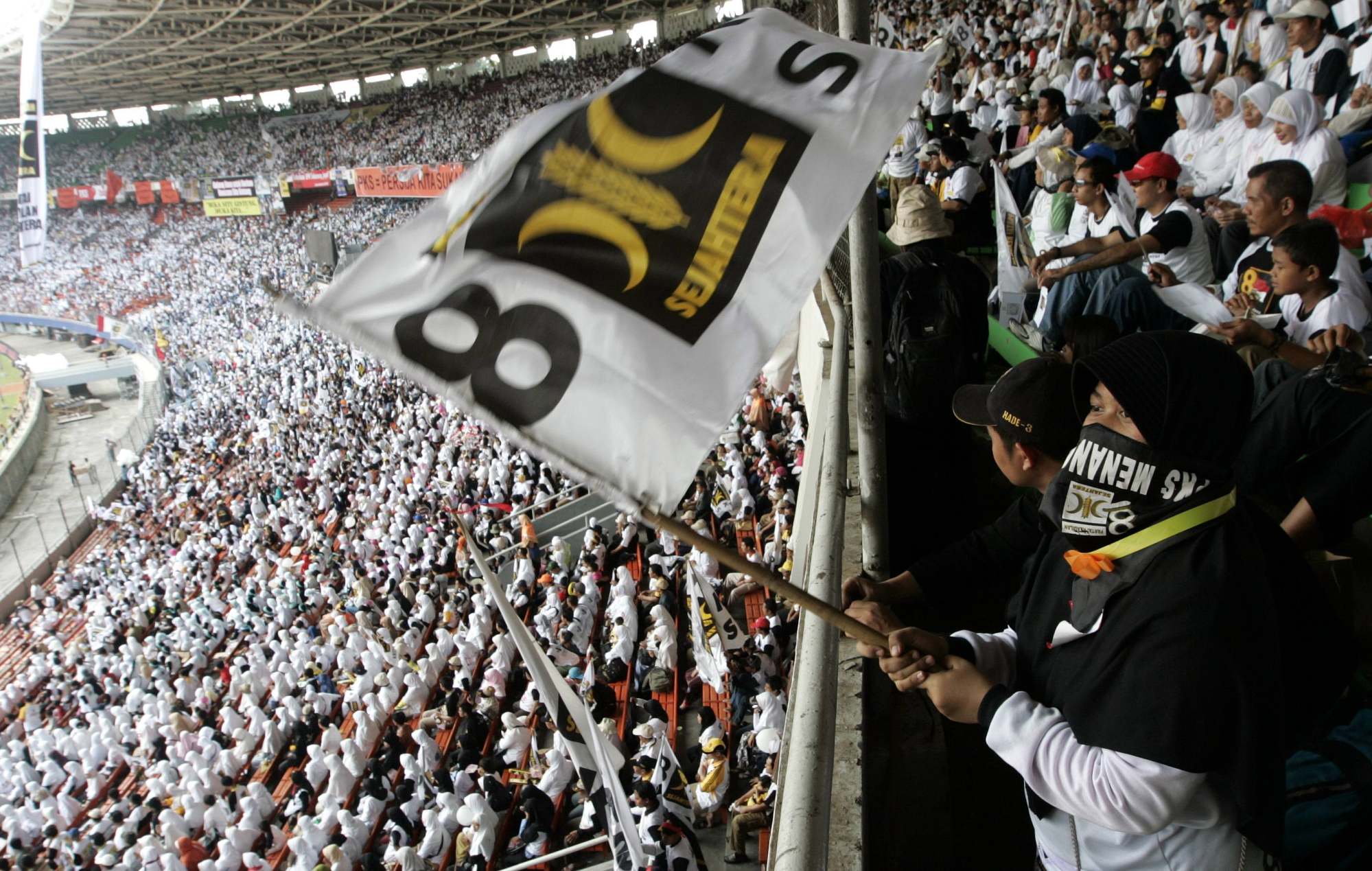
Indonesia election 2024: as Prabowo dances his way up the polls, can he keep in the groove until voting day?
- Prabowo Subianto is riding high in the polls after winning over Indonesia’s younger generation with an ‘adorable’ social-media campaign
- The momentum is such that some observers are already predicting his outright victory in February – if not for an unlikely alliance between his rivals
Now the former special forces commander, who was once banned from the United States over alleged human-rights abuses in East Timor, is being called gemes – an Indonesian slang term that roughly translates as “adorable” – by a younger generation both largely unfamiliar with his contentious past and broadly supportive of his campaign, as shown by his ticket’s dominance in recent polls.
The question now is whether the ex-general can maintain his groove until the election in February, or whether his rivals can find a way to change the beat.
Prabowo slams West’s ‘unfair’ treatment of Indonesia: ‘we don’t need Europe’
Prabowo’s gambit in picking the president’s son appears to have paid off, at least for now. Despite all the controversy, four of the latest polls taken after he tapped Gibran show the pair with a significant lead of around 10 points over their rivals.
Outright victory possible?
Observers say that if Prabowo keeps up his recent momentum, there is a chance he could win the election outright by capturing more than 50 per cent of the vote on February 14, avoiding a run-off.
A senior member of Prabowo’s Gerindra party made that bold prediction last week, saying: “Without meaning to be arrogant, if there is no fraud, we are sure that the Prabowo-Gibran pair can win in one round.”

Some early signs of stronger messaging already seem to be coming from Ganjar, who belongs to the Indonesian Democratic Party of Struggle (PDI-P), the same party as Widodo.
It was perhaps Ganjar’s strongest indication yet that he is ready to present himself in opposition to Widodo by criticising the leader’s recent actions as undemocratic, said Alexander R. Arifianto, a political scientist and senior fellow with the S. Rajaratnam School of International Studies’ Indonesia programme.
Ganjar also made statements this month highlighting the importance of integrity and safeguarding Indonesia’s democracy, and posted a video online discussing the controversial court ruling directly.
“I initially tried to be reserved about this affair. But then I examined every sentence of that verdict that entered into the ethics panel ruling. It was upsetting and disturbing,” he said. “I am speaking as a citizen, a member of the public, who is distraught about attempts at democracy and justice being destroyed.”

Noory Okthariza, a political researcher from the Centre for Strategic and International Studies (CSIS) in Indonesia, said Ganjar must make a strong case to PDI-P supporters that he is different from Widodo if he hopes to undercut the latter’s popularity among voters.
“[Ganjar] needs to show the importance of being the one chosen by the party’s leader Megawati, the daughter of Sukarno,” Noory said, referring to Indonesia’s founding president and his daughter.
“That’s how you sway the loyal followers of PDI-P and Sukarno’s ideology. If he continues to play it safe, I don’t think that will do him any favours.”
An unlikely alliance
Trailing behind in the polls is Anies, the only candidate who has presented himself as an opposition figure, running on a campaign of perubahan (change).
But there is very little in Anies’ manifesto or rhetoric that directly criticises Widodo or his policies, according to Wasisto Raharjo Jati, a political analyst with the Jakarta-based National Research and Innovation Agency.
“It seems Anies is focusing his policy platform to reach out to younger voters,” he said, adding that the candidate would also continue seeking the favour of influential Islamic parties, to which he has close ties.
CSIS’ Noory said that Anies had not used his “unique position as an opposition figure” to really promote and differentiate himself from the other two candidates.
Anything is possible in Indonesian politics. I think Ganjar and Anies will be very strategic during the campaign period
Some experts have suggested that Ganjar and Anies might form a coalition to unify their voters should Prabowo have a significant lead in the first round of the election without winning outright. If there is a run-off, the election process would be extended by more than four months, with the second vote taking place on June 26.
“I think the focus at the moment for both Anies and Ganjar is not so much on how to beat Prabowo, it’s more about how they can secure enough votes to take the election to a second round,” Noory said.
“Anything is possible in Indonesian politics. I think Ganjar and Anies will be very strategic during the campaign period, and might not criticise each other.”

But cooperation between Ganjar’s secular PDI-P and Anies – whose Coalition of Change for Unity includes the Islamist, conservative Prosperous Justice Party – would be challenging.
“These core constituencies are not ideologically aligned and often sit at polar-opposite ends to each other,” Arifianto said.
“It’s difficult to see how they would forget their differences, and open hostilities towards each other in the past, just to support a unified Ganjar-Anies ticket.”
Meanwhile, Prabowo has enlisted the help of former West Java governor Ridwan Kamil to lead his campaign in the country’s most populous province. He has also sought to curry favour with East Java Governor Khofifah Indarparawansa, whose province is considered the heartland of Indonesia’s largest moderate Muslim group, Nahdlatul Ulama, which has at least 95 million members.
If Anies drops out of the race, it is more likely that his voter base would support Prabowo ... than Ganjar
Prabowo also has “more Islamic credentials than Ganjar”, according to Arifianto, and could win over Anies’ Islamic-oriented voters should it come down to a head-to-head run-off.
“If Anies drops out of the race, it is more likely that his voter base would support Prabowo as he is more ideologically similar to Anies than Ganjar,” Arifianto said.
Electoral experts say the surge in popularity Prabowo has enjoyed in the wake of Gibran joining his ticket could still wane before the election. But they predicted an opportunity for him to leverage the “bandwagon effect” by capitalising on his current poll momentum to attract undecided voters to his side, solidifying his lead.
“The best-case scenario [for the other candidates] is if there is a major misstep by Jokowi or Prabowo’s camp, like a big corruption scandal,” said Arifianto, referring to Widodo by his popular nickname.
“But given Jokowi’s popularity, it’s going to be difficult to find a narrative that would undermine the Prabowo-Gibran campaign at this stage.”
Are Indonesia’s political dynasties back? Ask Widodo’s son, Gibran
Widodo, who started out as a humble furniture manufacturer, rose to the presidency and twice defeated Prabowo, the son-in-law of former president Suharto, in large part because voters were tired of the elite family dynasties that have long dominated Indonesian politics.
Now, with his son on track to become the next vice-president alongside Prabowo, Widodo’s legacy is in the hands of voters, who will have the choice of helping him start another political dynasty or choosing another path.

